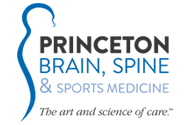Heidy Bacolot-Bocalan, RPT
Physical Therapist
When most arrive for their first appointment, they’ve probably heard of physical therapy, but they’re unsure of what it is, exactly. I try to be mindful of that both during our introduction and throughout their treatment. I’ll describe what I’m about to do and why I’m doing it.
With every new patient, I’ll first conduct a comprehensive physical evaluation so that I can accurately assess their needs. I’ll also ask them about their goals for physical therapy. Many aspire to return to the life they knew before their injury occurred. Others, for whom that’s not possible, may want to regain a sense of independence.
I take all of this into consideration when developing a treatment plan. Before we put it into action, I’ll explain the intervention I plan to use, describing how it’s meant to work and how they’ll likely feel during the experience. When the patient feels like we’re working toward the same end, they tend to trust the process more than they otherwise would.
As their physical therapy continues, I’ll reassess their physical condition and mindset at frequent intervals so I can measure the effectiveness of their intervention. They could be progressing physically while struggling to remain motivated. That’s enough to warrant a shift in direction.
While every patient’s condition is unique, physical therapy is typically a longterm commitment. Any signs that the prescribed treatment is not sustainable should be taken seriously, and sufficient adaptations should be made.
It’s also important to maintain a constant, honest dialogue between therapist and patient because the patient knows their body best. For all my training and experience, they’re the ones who can most accurately determine how near or far they are from their normal.
That’s especially true of patients who are struggling with dizziness. Every year, more than 10 million Americans see a doctor because of dizziness, which can occur for various reasons, including vertigo, migraines, and certain neck issues. I specialize in vestibular rehabilitation, an exercise-based program that can improve balance and reduce problems related to dizziness, such as neck stiffness and/or pain, headaches, and frequent falls.
My practice welcomes referrals for most spine disorders, and we accept most major insurance providers, as well as Medicare.

